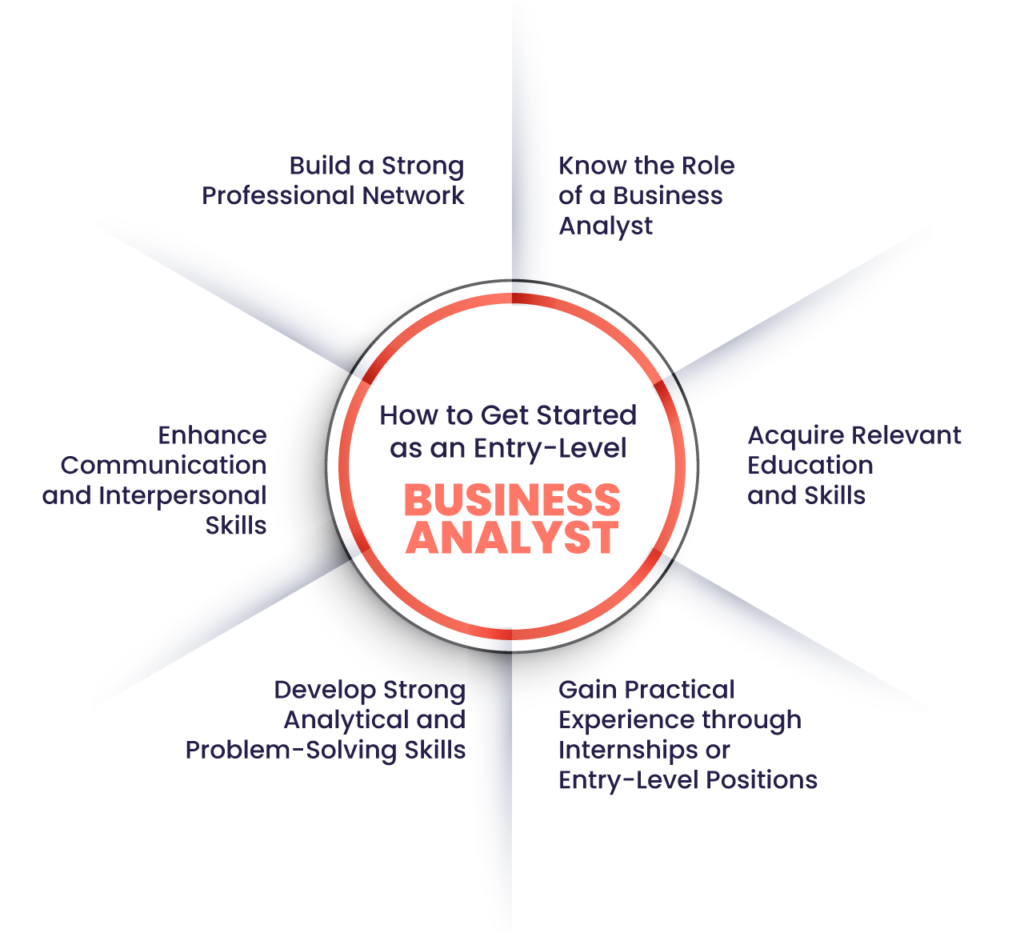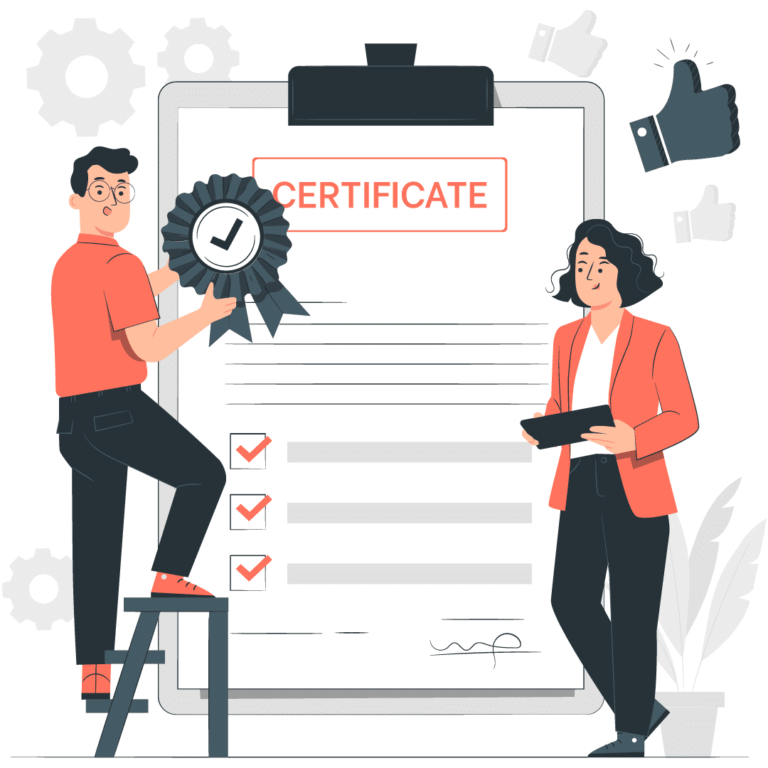Introduction
Starting out as an entry-level business analyst can be an exciting and gratifying career path, with potential for advancement and growth in a variety of industries. Whether you’re transferring from another industry or starting straight out of college, here’s a complete resource to help you get started as a business analyst.
Simple Steps to Follow as an Entry-Level Business Analyst
Here is the simple step below that you can follow as a beginner to become a certified business analysis professional :.
1) Know the Role of a Business Analyst
Before going deeper, it is important to understand the basics of what a business analyst does. In simple terms, a business analyst acts as a bridge between business stakeholders and IT teams, translating business demands into actionable requirements for system enhancements or new initiatives. They examine data, processes, and systems to identify areas for growth and provide solutions to increase efficiency and effectiveness.
2) Acquire Relevant Education and Skills
While no specific degree is usually required, experience in business, economics, finance, or information technology may be beneficial. Acquiring technical skills, such as expertise in Microsoft Excel, SQL, and data analysis tools like Tableau or Power BI, can also help advance your career.
3) Gain Practical Experience through Internships or Entry-Level Positions
Internships are an excellent way to gain practical experience and learn about the day-to-day tasks of a business analyst. Look for opportunities at organizations that offer organized internship programs or entry-level roles where you can observe skilled analysts while contributing to live projects.

4) Develop Strong Analytical and Problem-Solving Skills
As a business analyst, you will be responsible for analyzing complex data sets and solving difficult challenges. Improve your analytical abilities by practicing critical thinking, problem solving, and decision making. Learn about analytical approaches such as SWOT analysis, root cause analysis, and process modeling.
5) Enhance Communication and Interpersonal Skills
Excellent communication is essential in this profession, as you will need to convey technical knowledge to non-technical audiences and collaborate with cross-functional teams. Improve your oral and written communication skills, listen actively, and learn how to adjust your message for different audiences.
6) Familiarize Yourself with Business Analysis Tools and Methodologies
Develop expertise in industry-standard business analysis tools and processes such as Agile, Scrum, and Six Sigma. Familiarize yourself with requirements gathering methods, user story mapping, and process mapping technologies like BPMN.
7) Build a Strong Professional Network
Networking can lead to new possibilities and important insights into the subject of business analytics. Attend industry events, conferences, and seminars to meet experts in the field; join relevant online communities and forums; and connect with mentors who can provide support and advice.
8) Obtain Relevant Certifications
Earning business analysis professional certification can show your dedication to the job and increase your credibility as a business analyst. Try getting a certificate like:
- Certified Business Analysis Professional (CBAP)
- Entry Certificate in Business Analysis (ECBA)
- Agile Analysis Certification (IIBA-AAC)
- Certified Scrum Master (CSM)
9) Prepare Your Resume and Cover Letter
Create a focused resume and cover letter highlighting your relevant abilities, education, and experiences. Customize your application materials for each employment opportunity, emphasizing how your background matches the specific criteria of the role.
10) Prepare for Interviews
Prepare carefully for the interview by researching the company, learning about its industry and competitors, and practicing common business analyst interview questions. Be prepared to talk about your analytical abilities, problem-solving abilities, and experience working on cross-functional teams.
Things to Remember for the Entry-Level Business Analyst
- Familiarize yourself with the organization’s activities and processes to discover opportunities for improvement.
- Develop excellent analytical abilities so you can evaluate data, spot trends, and make data-driven decisions.
- Pay close attention to detail when documenting requirements and analyzing data to guarantee accuracy and precision.
- Improve your solid communication abilities in both writing and speaking so you can effectively convey technical information to non-technical stakeholders and interact with cross-functional teams.
- Learn industry-standard approaches like Agile, Scrum, and Six Sigma to streamline operations and increase productivity.
- Continually seek professional development and education opportunities to stay updated on developing technologies and best practices in the field.
Conclusion
Starting a career as an entry-level business analyst requires a combination of education, abilities, and practical application. By adopting these steps and being proactive in your professional development, you can set yourself up for success in this dynamic and exciting field.
I hope you have read the blog carefully and got some information about How to Get Started as an Entry-Level Business Analyst or want to pursue a certified business analyst course. If you still have any questions, you can contact us.







No comment yet, add your voice below!